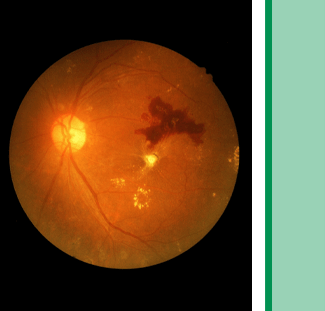
At Dr. Benaim’s office, we understand the importance of specialized eye care for patients with diabetes. Diabetes can have a significant impact on your vision, potentially leading to conditions like diabetic retinopathy, glaucoma, and cataracts.
Our dedicated team is here to provide comprehensive diabetic eye care, focusing on early detection and treatment to protect your eyesight. With regular checkups and personalized treatment plans, we work with you to manage the effects of diabetes on your eyes. Trust us to help you maintain healthy vision and prevent future complications.
A thorough diabetic eye examination involves measuring intraocular pressure, conducting a detailed retinal assessment to examine the back of the eye, and performing an evaluation of the anterior segment to assess the health of the front structures of the eye.
Diabetes can have a serious impact on your eyes, leading to a range of complications if left untreated. Some of the ways diabetes affects your eyes include:
Diabetic eye conditions are mainly caused by high blood sugar levels, which can damage the tiny blood vessels in your eyes. Risk factors include:
Diabetic eye conditions often don’t have symptoms in the early stages. However, as the condition progresses, you may notice:
At Dr. Benaim’s office, we offer a variety of treatment options to help manage and slow the progression of diabetic eye conditions:
With proper care and regular eye exams, many patients can prevent serious vision loss from diabetic eye conditions. Early detection and timely treatment are key to maintaining healthy vision. At Dr. Benaim’s office, we are here to help you manage your eye health and ensure the best possible outcome.
Make an appointment today to protect your vision for the future!
HOURS
Monday – Friday
8:30am-4:30pm
Closed Saturday & Sunday
Tel: 561-747-7777
Fax: 561-575-1921
info@benaimeye.com